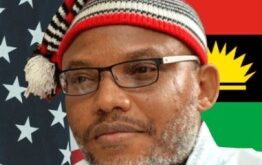By Josiah Chijindu Egbilika
February 21 every year is the celebration of the international day for mother tongue. It is a day set aside to create global sensitization about indigenous languages in a bid to bridge the gap on language discrimination.
This year is not left out in the celebration as the world commemorates the day focusing on education with the theme: Multilingual education – a pillar of learning and intergenerational learning.
According to United Nations, presently, 40% of global population lacks access to education in their native languages. And the figure goes over 90% in some regions. In Nigeria, one can point places or regions where native languages are used as means of communication or even taught in educational sector, regrettably, it has not been a major concern in the nation.
Although the Nigerian situation seems challenging with about 625 recognized languages and over 2000 dialects, it becomes difficult on how to actualize a multilingual system in our schools. To foster some sort of solution, the former Nigerian Minister of Education, Mr. Adamu Adamu in November 30, 2022 announced a new language policy, making mother tongue a compulsory medium of instruction from Basic (Primary) 1 to 6.
Unfortunately, one year, three months after little or nothing has been done to actualize this policy. There have been no laid down implementation structure or road map to bring the policy to light. It has become another established black and white that will remain so without visible successes.
Although, in some States, mother tongues are taught in schools, this is merely a few to the whole. In some cases, some individuals facilitate process which has created little impact to the system.
Nigeria is bewailed the influx of English, French, and Arabic. The influence these languages have over the mother tongues cannot be fathomed. English is the accepted and recognized lingual franca in the country, French and Arabic are presently the most learnt foreign languages, in fact, Arabic having so much hold in the Northern Region of the nation.
Furthermore, it is a well-known fact that the Nigerian languages are in the bid of extinction. Thus, there is need to implement the Nigeria Policy making mother tongue a compulsory medium of instruction in schools. Underscoring the difficulties in achieving this policy holistically, the first step is to make language of a geographical location a compulsory subject in basic 1-6. Secondly, make it compulsory that students from basic 7-9 (Junior Secondary Schools), and Senior Secondary Schools select two indigenous languages (either their mother tongue and another or two languages different from their mother tongue), one in Junior and the other in senior. This implies that teachers will be needed in teaching the languages in the schools.
This can create more employment, reduce the number of unemployed persons in the society, increase appreciation of various languages, reduce language apathy and discrimination, improve unity and oneness in the country.
Therefore, I call on the government to as a matter of urgency begin modalities to achieving a multilingual system in the country. There is need to create a directorate from the National to the States even down to the Local Government Areas on Language Matters which will be responsible with the development and sustenance of languages in Nigeria, implement policies on Language and recommend for amendment any policy on language that has no profit on language development in the nation. Funds should be budgeted for the development of indigenous languages separate from any institution’s budget. And as a matter of emergency, a national language conference (having scholars of languages, language experts, language advocates, Civil Society Organizations and representatives of the 625 languages) should be called to examine possible means of actualizing language policies in the country.
Egbilika, a linguist and Indigenous Language advocate, is the anchor, LanguageHealth Show on NigeriaInfo 92.3 FM. He can be reached via email: languagesense@gmail.com, chijindujo@gmail.com, and also at https://languagehealth.blogspot.com
 PH Mundial – Port Harcourt Online Newspaper News Across The Region
PH Mundial – Port Harcourt Online Newspaper News Across The Region





